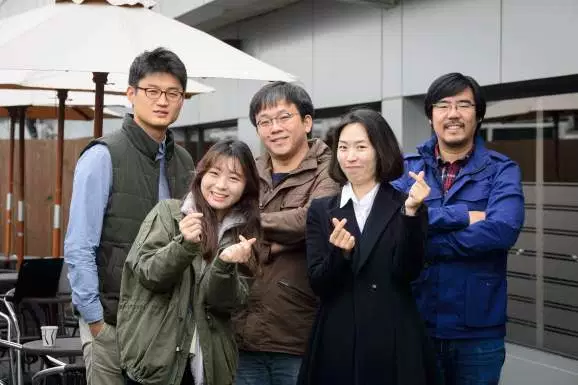2016年にフォローすべき5つのディープ・ラーニングのスタートアップ
5 deep learning startups to follow in 2016
So much has happened this year in the world of deep learning, that trendy type of artificial intelligence that entails training artificial neural networks on large data sets and then getting them to make inferences about new data.
今年、ディープラーニングの世界では非常に多くのことが起こった。 ディープラーニングとは、人工知能の流行りのスタイルで、大きなデータセットと人工的なニューラルネットワークを必要とし、それらに新たなデータについて推論させるものだ。
- entails - 必要とする
- inferences - 推論する
There have been technical breakthroughs, acquisitions, funding deals, open source releases in the field, and even the establishment of a nonprofit research lab backed by the likes of Elon Musk and Peter Thiel.
この分野では、技術的なブレイクスルーや、買収、資金調達、オープンソースのリリースがあった。 そして、イーロン・マスクや、ピーター・シールなどに支援された、非営利の研究所までもが設立された。
All of the startups I included in my roundup “5 deep learning startups to follow in 2015” (as well as others, like Clarifai) have made progress of some kind this year. Now, as we wrap up 2015 and get ready for 2016, a different set of deep learning startups are top of mind for me.
かつて私の「2015年にフォローすべき5つのディープ・ラーニングのスタートアップ」という記事に含ませた、全てのスタートアップは(Clarifaiのような他のものも同様に)今年、幾つかの種類の進歩をしました。 今、私は、2016年を迎えるにあたって、また別のディープラーニングのスタートアップが気になっているのです。
それらは、以下のもの達です。
Deep Instinct
Here’s a startup that’s trying to use deep learning to get big in the antivirus software market. Deep Instinct officially launched last month.
アンチウィルスソフトウェア市場で、ディープラーニングを大きく使用しようとしているスタートアップ。 Deep Instinctは正式に、先月設立されました。
Chief technology officer Omid “Eli” David, who received a Ph.D. in computer science at Israel’s Bar-Ilan University, is a longtime computer chess researcher who published a paper (PDF) on deep belief networks for malware classification earlier this year. Deep Instinct’s investors include UST Global and Blumberg Capital.
Lunit
Lunit, whose cofounders come from the DARPA Robotics Challenge-winning South Korean university KAIST, helps radiologists understand medical images. U.S. startup Enlitic also does that, but Lunit is different by virtue of its Data-driven Imaging Biomarker (DIB) algorithm and its focus on chest X-rays, cofounder and chief executive Anthony Paek told VentureBeat in an email.
共同設立者が、DARPAロボティクスチェレンジで勝った韓国の大学KAIST出身の Lunit は、放射線科医が医療画像を理解することを支援する。 米国のスタートアップである Enlitic もそれを行っているが、Lunitはデータ駆動型イメージングバイオマーカー(DIB)アルゴリズムの効能において違っていて、その焦点を胸部X線に置いていると、共同設立者でCEOの Anthony Paekが VentureBeatへemailで語った。
Earlier this year the startup participated in the ImageNet image recognition competition, going up against researchers from Google, Microsoft, Tencent, and other big technology companies. Last month Lunit raised $2 million from Formation 8, SoftBank Ventures Korea, and Daum Kakao’s K Cube Ventures.
Nnaisense
This early-stage startup hails from the Swiss city of Lugano. The name Nnaisense “is pronounced like nascense, because it’s about the birth of a general purpose neural network-based artificial intelligence (NNAI),” cofounder and president Jürgen Schmidhuber told VentureBeat in an email.
この初期段階のスタートアップは、スイスのルガノ市からの出身です。 この名前、Nnaisense は、nascenseのように発音され、一般目的のニューラルネットワークベースの人工知能(NNAI)の誕生についてのことだからだと、共同設立者で社長のJürgen SchmidhubeがVentureBeatへemailで語りました。
Schmidhuber is scientific director of the Swiss AI lab IDSIA, which is also located in Lugano. Schmidhuber is not one of the top four luminaries of deep learning — that would be Facebook’s Yann LeCun, Baidu’s Andrew Ng, Google’s Geoff Hinton, and Yoshua Bengio of the University of Montreal. But he has a track record in artificial intelligence and influence in the field as a result of his contributions.
TeraDeep
TeraDeep has built technology for image recognition, which is a very common use of deep learning. Based in Santa Clara, California, the startup has a few YouTube videos demonstrating the applications of the technology.
TeraDeep は、ディープラーニングのとても一般的に使用される画像認識向けの技術を構築した。 カリフォルニアのサンタ・クララに基盤を置くスタートアップは、この技術のアプリケーションのデモをする、いくつかのビデオを保有しています。
The startup offers Learning Camera software alongside application programming interfaces (APIs) that developers can incorporate into their applications. Facebook’s LeCun is an advisor of the startup, as is Clément Farabet, cofounder and chief technology officer of Madbits, the deep learning startup Twitter acquired in 2014.
Vuno
In South Korea, Vuno has been busy forming partnerships with health care organizations to help doctors diagnose diseases with technology that makes inferences about medical data.
韓国の Vunoは、医療データから推論を行う技術で、医師の診断支援のために、ヘルスケア組織と提携している。
The founders previously worked on speech recognition at Samsung. The startup uses a proprietary framework called VUNOnet but plans to open-source it, chief technology officer Kyuhwan Jung told VentureBeat in an email. Like Lunit, Vuno participated in ImageNet this year. Investors include Bon Angels and Future Play.
元記事は以下からどうぞ。
